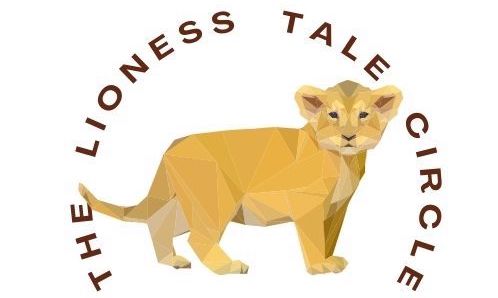Finding Your Roar
Lessons from the Lioness Tale Prison Project and the use of expressive arts in healing
6 Zoom Sessions
12 CEUs available for LMFTs, LCSWs, and LPCCs
Training Cost
$300 for CEU credit – Sliding scale option for non-CEU participation, and all donations gratefully accepted.
CIRCLE ONE
Lessons from the Lioness Tale Prison Project and the use of Expressive Arts in Healing
This circle will be a gathering of people from many walks of life who hold an intention to express from the deepest knowing of their essence. Suitable as training for therapists, spiritual leaders, practitioners, and chaplains who will also find worth in this opportunity. The heart of this program is about connecting with our own spiritual essence, regardless of faith or belief system.
With various forms of expressive arts, we will become more capable of communicating from our strongest and most vulnerable places inside and learn tools to support our clients and/or community members to also access a deeper place of self-knowing and self-expression.
We hope to share the wisdom that came from working with women serving life sentences in prison and who have participated in the Lioness Tale Prison Project and will include guest speakers who have participated in, and taught the program inside.
This workshop is an opportunity for LMFTs, LCSWs, and LPCCs to earn 12 CEUs while expanding their knowledge of expressive arts therapy modalities and gaining insight into working with women in prison.
The workshop will also serve as a volunteer training program for the Lioness Tale Prison Project for those who are considering joining our team. It may also serve as a vehicle for anyone wanting to dive into a greater awareness of their essence and give voice to their irrevocable freedom.
INSTRUCTORS
Instructors for this Circle

Russell V. Jensen MA EdM LMFT #87760
CAMFT CE Prov. 147861
Russell Jensen has been studying Gestalt Theory and Practice since 2007. He began studying at the Gestalt Center for Psychotherapy and Training in New York City, then at the Pacific Gestalt Institute in Los Angeles, and at Tribal Ground, a Gestalt-based learning community in Aptos, California. He has been participating in these communities in one way or another through today.
Russell entered the mental health field in 2004. Over the course of his career so far, he has worked in various mental health treatment settings including residential settings, transition houses, schools, in-home support services, outpatient centers, a women’s prison, and at his own private practice. In that time, Russell has worked with a wide range of ages, populations, diagnoses, and levels of acuity.
His greatest interest is working with human service providers; therapists, social workers, spiritual leaders, nurses, teachers, law enforcement, armed forces, and emergency responders.

CAMFT Approved Training Provider
Born in Australia, Nikki Fryn, considers herself a perennial student of human nature, a trait she found invaluable in her coaching and consulting work with businesses.
Nikki participated in the business world for many years, until discovering an inclination for business systems, when she began consulting in systems design, and taking extended breaks to live in Japan, Tonga, and New Zealand for months or years at a time.
Eventually missing deep joy in her life, in late 2000 Nikki decided to fire her consulting clients, began learning to fly, taking singing lessons, and took a deep dive into the world of behavioral sciences exploring meditation, group process, hypnosis, and more.
Nikki completed life coach training in 2001, and began her practice soon after. In 2003 she began to travel the world, but soon discovered a new life of work and personal development with gifted Gestalt practice teachers such as Christine Price and Dorothy Charles at Esalen Institute, in Big Sur, California. Staying for more than 2 years, she learned what it takes to create a fulfilling life for herself, and continues learning from these teachers even now.
Working with the women inside has helped Nikki acknowledge her own inner prison, and how incarceration is as much a state of mind as a state of being.

Nikki fryn
OBJECTIVES
Learning Objectives for CEU Achievement
Recall Key Components
Identify Application
Recall Ways to Incorporate
Recall Examples
Identify Tools
SCHEDULE
Six Weekly Classes
Class 1
6-8pm Zoom
- Introductions and connecting
- Overview of expressive arts therapy
- Words from the author, Diane Pendola
- Life-sentence prison survivor introduction
- Brief story-time; prologue and chapter 1
- Homework: reading and reflecting
Class 2
6-8pm Zoom
- Meditation, check-in
- Bibliotherapy; how books can be healing
- Reading and sharing of expressive arts therapy homework
- Story from within the prison
- Closing discussion, check-out
- Homework; reading and reflecting
Class 3
6-8pm Zoom
- Meditation, check-in
- Poetry therapy; dancing words, healing hearts
- Story from within the prison
- Closing discussion, check-out
- Homework: reading and expressive arts
BREAK
One Week Break
Class 4
6-8pm Zoom
- Meditation, check-in
- Narrative therapy; reclaiming your story
- Reading and sharing of expressive arts therapy homework
- Story from within the prison
- Closing discussion, check-out
- Homework: reading and expressive arts
Class 5
6-8pm Zoom
- Meditation, check-in, homework share
- Music therapy; finding our voice, harmonizing our relationship
- Reading and sharing of expressive arts therapy homework
- Story from within the prison
- Closing discussion, check-out
- Homework: reading and expressive arts
Class 6
6-8pm Zoom
- Meditation, check-in, homework share
- Art therapy; Going beyond words
- Reading and sharing of expressive arts therapy homework
- Story from within the prison related to chapters #-# (TBD)
- Closing discussion, check-out
- Self-evaluation, review syllabus objectives, and personal objectives
OUTLINE
Outline of Main Points:
Expression is a key component to healing and self-discovery
Expressive arts offer various modalities of communicating and gives greater access to the healing process
Women in prison have received messaging that obstruct their ability to know and express themselves, consequently obstructing healing, growth, and healthy relationships
Figuratively, many or all of us have imprisoned our essential self-expression
Expressive arts facilitate the interpersonal and intra-personal dialogue that leads to growth, self-discovery, self-expression, trauma healing, and societal healing
Inclusion and dialogue with people in prison facilitates personal growth and insight into our own figurative prisons; individually and collectively
Five examples of expressive arts therapy include; bibliotherapy, narrative therapy, art therapy, poetry therapy, and music therapy
READING
Required & Suggested
Required Reading
The Lioness Tale by diane pendola
Please purchase “The Lioness Tale” prior to our first meeting but we request that you wait to read along with the group and not prior to the workshop, if you haven’t already read the book. This book is the basis of the in-prison workshops, and will be our touchstone throughout this course.
The Lioness Tale, by Diane Pendola is a brief parable in which the main character is an imprisoned lioness who embarks on a journey of self-discovery with the assistance of a panther guide who guides her towards the freedom within.
Suggested Reading
Articles to access
You are not required to read any of the following listed books or articles prior to the workshop though you may find them helpful. Rather, the following list is more of a work-cited list of articles for you to access for a more in-depth discussion of the coursework. We also hope that this list will be useful reference material after the completion of the Find Your Roar workshop.
General:
Chödrön, Pema ; The Wisdom of no escape. Shambhala 2010
Narrative therapy:
Chuk Wing Hung Keswick; Lee Sek-wing. “The application of narrative practice in prison in Hong Kong; Be water, follow the flow.“ International Journal of Narrative Therapy & Community Work. 2018, Issue 3, p8-13.
Law, Ho. “Narrative coaching- Part 3: Approaches for groups, teams, organizations, and community” Coaching Psychologist. Dec 2020, Vol. 16 Issue 2, p59-70. 12p.
Music therapy:
Chen, Xi et al., “Music therapy for improving mental health problems of offenders in correctional settings: systemic review and meta-analysis”. Journal of Experimental Criminology. Jun 2016, Vol. 12 Issue 2, p209-228. 20p.
Poetry therapy:
Gold, Richard; Jordan Elizabeth. “Grief, Poetry, and the sweet unexpected” Death Studies. Jan 2018, Vol. 42 Issue 1, p16-25. 10p.
Furman, Rich; Downey, Eleanor Pepi; Jackson, Robert L.; Bender, Kimberly. “Poetry Therapy as a Tool for Strengths-based Practice.” Advances in Social Work. Fall 2002, Vol. 3 Issue 2, p146-157. 12p.
Art therapy:
Erickson, Bonnie J.; Young, Mark E. “Group art therapy with incarcerated women” Journal of Addictions & Offender Counseling. Oct 2010, Vol. 31 Issue 1, p38-51. 14p.
Bibliotherapy:
Kohutek, Kenneth J.; “Bibliotherapy within a correctional setting.” Journal of Clinical Psychology. Nov 1983, Vol. 39 Issue 6, p920-924. 5p.
Detrixhe, Jonathan J.; “Souls in jeopardy: questions and innovations for bibliotherapy with fiction.” Journal of Humanistic Counseling, Education & Development. Spring 2010, Vol. 49 Issue 1, p58-72. 15p.
FINE PRINT
Terms & Conditions
Scroll up to read full details of this workshop, and if you wish to register, please familiarize yourself with these important points
- The workshop is dependent on adequate enrollment.
- Full refunds will be offered if enrollment is not sufficient for the intended supportive classroom environment.
- Pending complete attendance, CE certificates to be awarded electronically after you submit your course evaluation, and full workshop payment has been received.
- Facilities and programs are accessible to persons with disabilities. If you have a special need and plan to attend the workshop, please contact Russell V Jensen at 559.640.7077. Please allow as much advance notice as is possible to ensure we have ample opportunity to meet your needs.
- Fees for events are non-refundable except in the case the event is canceled or rescheduled. In the event of a course cancellation or rescheduling, Russell V Jensen will contact participants to ensure they are refunded.
- Course meets the qualifications for 12 hours of continuing education credit for LMFTs, LCSWs, LPCCs, and/or LEPs as required by the California Board of Behavioral Sciences.
- Russell V Jensen is approved by the California Association of Marriage and Family Therapists to sponsor continuing education for LMFTs, LCSWs, LPCCs, and LEPs. Russell V Jensen maintains responsibility for this program/course and its content.
- If you have any questions, concerns, or feedback please let us know! We value your experience.
- Should you decide your experience with us warrants a formal grievance, we ask that formal grievances be submitted via email to russell@russellvjensen.com with the subject line “Formal Grievance.”
- We will confirm receipt of your grievance within 24 hours and provide a solution focused response within 72 hours. An extended explanation of our grievance procedure is available on the “contact” page of my website.
- Scroll down to complete the registration form or scroll up for full training details and dates.
FORM
Registration & Payment Information
Pricing: $300 for CEU credit – Sliding scale option available on request. No cost for volunteer trainees for the Lioness Tale Prison Project. Be sure to read the terms and conditions above before completing the form.
All donations are gratefully accepted and are tax-deductible to Skyline Harvest, a 501(c)(3) charitable non-profit organization, and the parent to The Lioness Tale Prison Project.
We're happy to accept all donations, and volunteer hours may be available for those interested in the project.
If you have any questions or need clarification about the training, the cost of the training, or about the project, please add details in the message below.
